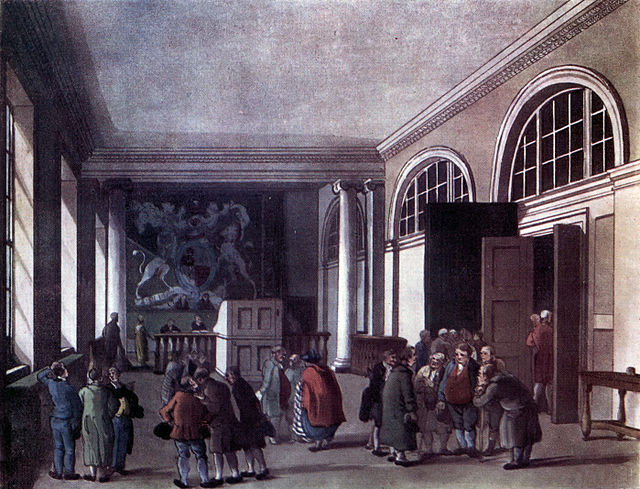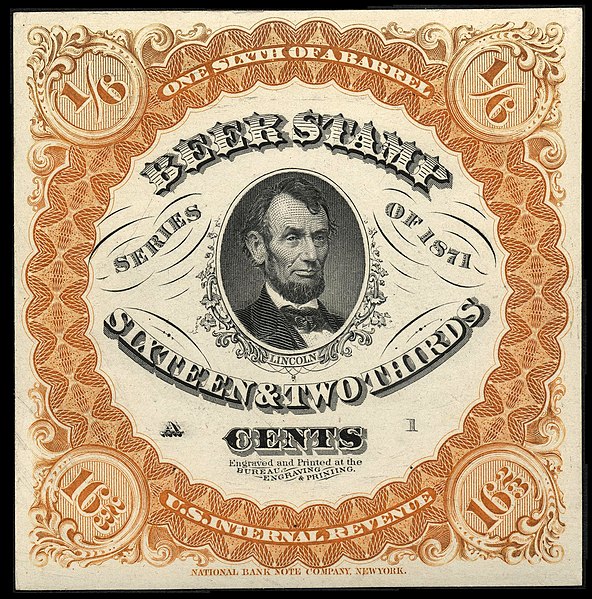His or Her Majesty's Excise refers to 'inland' duties levied on articles at the time of their manufacture. Excise duty was first raised in England in 1643. Like HM Customs, the Excise was administered by a Board of Commissioners who were accountable to the Lords Commissioners of the Treasury. While 'HM Revenue of Excise' was a phrase used in early legislation to refer to this form of duty, the body tasked with its collection and general administration was usually known as the Excise Office.
New Wing, Somerset House: home of the Inland Revenue's Excise Department from 1852 to 1909.
Gauger's office in Wadsworth Brewery.
The Excise Office, Broad Street, London: headquarters of the Excise from 1769 to 1852 (Thomas Rowlandson, 1810).
Parliamentarian John Pym, whom Blackstone calls the father of the Excise.
An excise, or excise tax, is any duty on manufactured goods that is normally levied at the moment of manufacture for internal consumption rather than at sale. It is therefore a fee that must be paid in order to consume certain products. Excises are often associated with customs duties, which are levied on pre-existing goods when they cross a designated border in a specific direction; customs are levied on goods that become taxable items at the border, while excise is levied on goods that came into existence inland.
1871 U.S. Revenue stamp for 1/6 barrel of beer. Brewers would receive the stamp sheets, cut them into individual stamps, cancel them, and paste them over the bung of the beer barrel so when the barrel was tapped it would destroy the stamp.
1828 "Old Frizzle"






